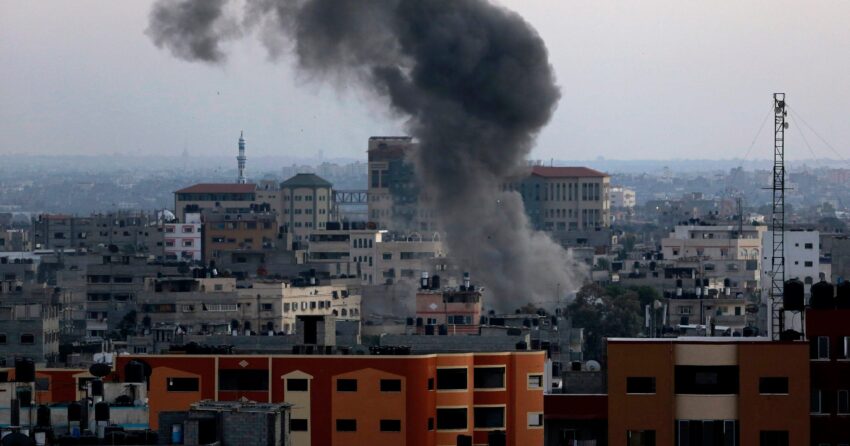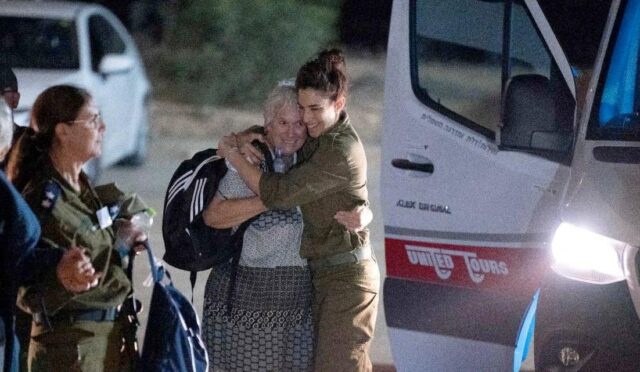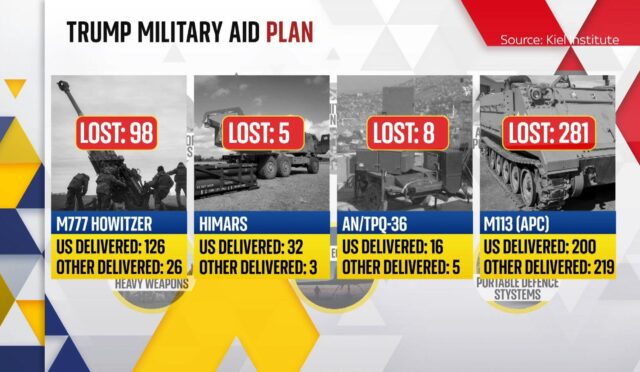Israeli Airstrike in Sidon Targets Hamas Commander
In a pre-dawn operation on Friday, the Israeli military conducted a targeted airstrike in the Lebanese port city of Sidon, resulting in the death of a major Hamas commander. The strike also claimed the lives of Hassan Farhat’s adult son and daughter, raising concerns about the escalation of violence in the region. Lebanese Prime Minister Nawaf Salam condemned the operation, labeling it a “flagrant violation of Lebanese sovereignty” and a violation of the ceasefire established on November 27.
According to an official release from the Israeli Defense Forces (IDF), the strike aimed to eliminate Hassan Farhat, who was identified as the commander of Hamas’s operations in Lebanon. The military claimed that Farhat was responsible for orchestrating numerous attacks on both Israeli soldiers and civilians following the renewed hostilities after the Gaza war that erupted in October 2023. Among these attacks was a rocket strike on the Israeli town of Safed, which resulted in the death of an Israeli soldier.
Details of the Attack and Aftermath
Witnesses in Sidon reported seeing smoke rising from the site of the airstrike, where a residential apartment on the fourth floor had suffered devastating damage. The location of the attack, situated in a densely populated neighborhood, triggered panic among residents, and emergency response teams rushed to the scene to assist those affected. Local news sources confirmed that three individuals, including the targeted Hamas commander, were declared dead.
Lebanese state media detailed the timing of the strike, reporting that it took place around 3:45 AM local time, which coincides with 00:45 GMT. The National News Agency of Lebanon reported that the airstrike involved a drone that unleashed two consecutive explosions, igniting a fire that resulted in extensive damage to the surrounding area. Emergency workers on the scene retrieved the bodies of the three people killed, as described by the agency.
Political Repercussions and Regional Tensions
Prime Minister Salam has called for increased international pressure on Israel to halt such attacks that endanger civilian lives and disturb peace in residential neighborhoods. The airstrike in Sidon is part of a series of Israeli operations targeting Hezbollah and Hamas leaders, which escalated recently following another deadly Israeli strike in southern Beirut that killed a Hezbollah liaison officer. Following this attack, four individuals, including a woman, were reported dead.
While Lebanese leaders unified in their condemnation of the strike, Israel asserted that its actions were a necessary response to recent, unclaimed rocket fire. The tensions between Israel and Hezbollah escalated significantly into open conflict last September, and even though a ceasefire was declared in November, Israeli airstrikes targeting Hezbollah remain ongoing. Under the terms of the ceasefire, the intended withdrawal of Israeli forces and the repositioning of Hezbollah’s assets have yet to be realized, leaving the situation precarious.
Ceasefire Violations and the Road Ahead
Despite agreements made in the November ceasefire, significant violations on both sides have complicated the peace process. Hezbollah is expected to reposition its forces away from the Israeli border, specifically north of the Litani River, while Israel was meant to pull back its troops across the UN-denoted Blue Line. However, Israel has missed two deadlines for this withdrawal and continues to hold onto five strategic positions deemed critical to its security.
The lack of compliance with ceasefire terms has fomented further distrust between Lebanon and Israel, jeopardizing regional stability. As both nations remain on edge, the potential for renewed violence looms large, with leaders on both sides advocating for resolutions that could prevent escalations into full-scale warfare.







